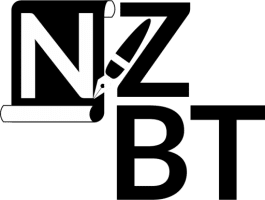Tools and Essentials for every Business
Every business large and small, new and existing has the same requirements. We all want to be seen, be busy and to be paid for the work we do.
NZBTs Business Toolkit is here to help no matter what stage your business is at.
What is Credit Management?
Credit management is defined as your company’s action plan to guard against late payments or defaults by your customers. An effective credit management plan uses a continuous, proactive process of identifying risks, evaluating their potential for loss and strategically guarding against the inherent risks of extending credit. Having a credit management plan helps protect your business’s cash flow, optimizes performance and reduces the possibility that a default will adversely impact your business.
Credit Checks, Credit Limit, Terms of Trade, Security, Accounts Receivable, Overdue Invoice, Unsecured Creditor, Secured Creditor, PPSR, Ledger Management. Many of us have heard the terms but don’t understand what they mean. Our team at NZBT have prepared a guide to help get you started and to help you understand what an asset good Credit Management can be to your business.
Why Is It Important?
Late payment and payment default situations happen with alarming frequency – it’s critical to the financial health of your company to minimize them. Customers who fail to pay their invoices or drag their feet in paying can directly jeopardize the survival of your business, which is why having a credit management system is important.
Terms of Trade
We want your business to succeed and want to make sure that you have the knowledge and the tools to safeguard your business, making it a better protected and more resilient business.
Credit Policies & Procedures
NZBT also provides a range of other products, services and education to ensure our customers have the tools and knowledge to be compliant, protected and are utilising all the tools available to achieve this.
Ledger Management
We want your business to succeed and want to make sure that you have the knowledge and the tools to safeguard your business, making it a better protected and more resilient business.
Accounts Receiveable
When collecting accounts receivables, be sure that all key data appears on your invoice so it doesn’t hold up the payment. Here’s a rundown of the basics to include:
- Your company name, address and telephone number along with a contact name
- The right company name and address of your customer and the right customer contact person
- The nature and quantity of the goods or services
- The price in the appropriate currency
- The agreed-upon payment period
- Your bank account number
- Also print your terms on the back of the invoice
If payment has not already been received, calling customers right before or on the due date of an invoice can be handled by the accounting department or the sales department, depending on the relationship with each customer. This call confirms the products you delivered and that the invoice has been received. In addition to facilitating the payment process, this step also provides good customer service to make sure everything is OK. This step can also prevent late payments if your client is not satisfied with the delivery— while there’s still time to rectify the issue. You can even consider offering your customer a small discount if they pay by the due date.
Credit Checks
By conducting a simple credit check of your customers before you begin you can assess the risk and put in place appropriate credit limits, payment terms and more. Talk to the team at NZBT now to learn how simple this can be.
Credit Management Training
Food For Thought
The Numbers Don’t Lie
There is a direct link between business success and having an effective Credit Management Policy. If your business has effective Terms of Trade you are already well on the way to success.
